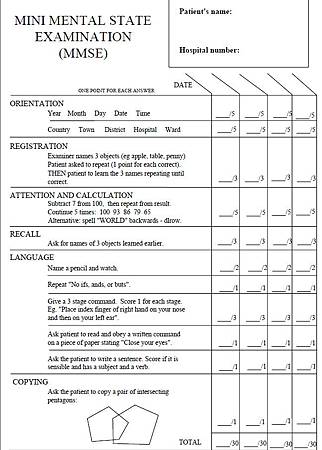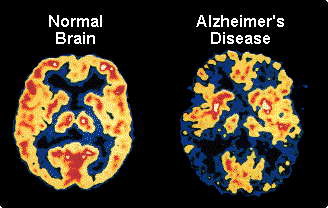►健康◄明日的记忆的一天*浅谈失智症*
Q:失智症有那些症状啊???
Q:The symptoms of dementia.
图片来源:http://health.morningstar.com.tw/healthqa/sick_ans.asp?id=405
表现得很激动具攻击性…
觉得自己的家被侵占了…东西被偷了…
甚至觉得家人被藏起来了…或是怀疑另一半出轨…
忧郁症而且常常睡不好…
而且因为睡不好分心而导致常常走失…
甚至有可能在公众场合做出不雅的举动…
(像是爱抚…手淫…或变身暴露狂…)
Agitation and aggression-Confusion or misunderstanding due to cognitive, language, or memory deficits.
Frightening, paranoid delusions-Common paranoid delusions include beliefs that the house has been invaded, that personal objects have been misplaced or stolen, that family members have been replaced by impostors (Capgras syndrome), or that spouses have been unfaithful.
Depression, Sleep disorders, Wandering(Distractibility and restlessness may lead to wandering.)
Sexually inappropriate behavior(Examples of sexually inappropriate behavior include inappropriate explicit sex talk and sex acts (grabbing, fondling, public masturbation, exposing). )
Q:到底甚么是失智症???
Q:What is dementia?
图片来源:http://tavis.tw/files/15-1000-11687,c1023-1.php
大家可能常常听到阿兹海默症…
但失智症其实并不等于阿兹海默症…
确切来说阿兹海默症只是失智症其中的一个诊断…
而失智症主要是记忆及认知领域的丧失(失语症、失用症、失认症)…
而这方面功能的丧失足以影响到日常功能…
(所以像我平常会有点健忘的话那不算喔> ”< 我还会自己穿衣服啦)
失智症目前已经是个很常见的问题了…
主要常见于老年人…
(我老了如果走失要记得带我回家~> <~)
Dementia is a disorder that is characterized by impairment of memory and at least one other cognitive domain (aphasia, apraxia, agnosia, executive function).
These must represent a decline from previous level of function and be severe enough to interfere with daily function and independence
And dementia is an increasing problem, primarily affecting elderly patients.
Alzheimer disease (AD) is the most common form of dementia in the elderly, accounting for 60 to 80 percent of cases.
Asymptomatic patients often present with concerns about developing dementia, especially when they have a family history.
(Only if you can’t handle with your own daily activities would be regarded as a dementia. For example, I may be forgetful sometimes but that doesn’t mean I ‘m a dementia cause I still know how to wear my clothes! But, if I should get lost when I‘m old, take me home please. )
Q:那么要做哪些检查才能得知并诊断自己得失智症呢???
Q:How to diagnose dementia?
图片为:MMSE量表
(可以自己简单做个测试)
当你有以上失智症状开始出现觉得不对劲到医院求治时…
或是你周遭有出现这样症状的人请立即带他到医院神经内科求治…
(不过我想如果你有以上症状你大概也无法自己到医院求治了= =)
当然详细的检查确立诊断是少不了的…
不过最常见的检查就是简易智能测验…
医师会用一个总分为30分的表格问你一些简单的问题…
(但我想如果你已经失智的话这些问题对你来说并不简单= =)
分数介在20~26分就是日常功能中度功能依赖…
可能有支配经济方面的困难…
分数介在10~20分纳在日常生活中依赖度又更高…
因为你可能没办法自己开车…购物跟维持自身清洁…
分数介在10分以下的就很严重了…
除了日常生活功能无法自理…还需要人看护照料…
The diagnosis of AD in practice depends on clinical criteria. The role of laboratory and imaging investigations is mainly to exclude other diagnoses. Neuropsychological testing may provide confirmatory information and aid in patient management.
Clinicians should also consider potential contributors to the dementia syndrome such as adverse effects of medication, depression, and metabolic disorders and deficiencies.
Clinical assessments — The clinical criteria are based on a history of insidious onset and progressive course, exclusion of other etiologies, and documentation of cognitive impairments in one or more domains. A detailed cognitive and general neurologic examination is paramount.
Many clinicians make use of standardized mental status scales, in particular, the Mini-Mental State Examination (MMSE), to document the presence and progression of dementia. It is important to use population-appropriate reference scores in the MMSE .
A MMSE score between 20 and 26 is associated with mild functional dependence, such as difficulty managing finances.
Moderate AD (MMSE score between 10 and 20) is associated with more immediate dependency, such as inability to drive, difficulty with hygiene and shopping, and remote memory impairment.
Severe disease (MMSE score under 10) correlates with a state of total dependence and need for constant supervision.
Q:为什么我会得失智症???
Q:Why I became a dementia?
图片来源:http://www.sfit.org.tw/health
而到底为啥米会得失智症…
至今似乎都没有个确切的原因…
主要还是跟大脑退化有关系…
不过以下有几项危险因子提供给大家参考…
像是年纪…家族病史…基因…轻度认知障碍…
若你有心血管方面的疾病…可能都是将来得失智症的危险群…
Dementia is a disorder of uncertain cause that primarily affects older adults.
The followings are high risks of demetia.
Age-remains the strongest risk factor for dementia, particularly for Alzheimer disease.
FAMILY HISTORY -Patients with a first-degree relative with dementia have a 10 to 30 percent increased risk of developing the disorder.
GENETIC FACTORS, MILD COGNITIVE IMPAIRMENT
ATHEROSCLEROSIS, Hypercholesterolemia, Hypertension, Smoking - Vascular risk factors have been linked to all incident dementia as well as to Alzheimer disease (AD) and vascular dementia individually.
Q:那失智症该怎么处理治疗呢???
Q: The treatments of dementia.
图片来源:http://blog.sina.com.tw/tomorrow/
因为大脑的退化是不可逆的…
所以目前失智症临床上只能就症状方面去治疗…
像是行为治疗可以减少失智患者激动具攻击性的行为…
确认会造成失智症患者激动具攻击性行为的原因…预想并满足他们的需求…
并尽量不要让环境上有太大变动去刺激他们…
Nonpharmacologic management — Increasing evidence suggests that nonpharmacologic measures, including behavioral methods, may be effective in reducing agitation and anxiety in patients with dementia. Behavioral interventions employ different strategies and techniques.
These include identifying any preceding events that generate agitation, determining whether unmet needs can be anticipated and alleviated, and avoiding environmental triggers such as a sudden change in surroundings
抗精神药物的使用则是针对失智症患者中有忧郁症、失眠等精神疾病来使用的…
Antipsychotic drugs — Atypical neuroleptics have been the agents of choice for treating hallucinations in patients with dementia.
However, these drugs may increase mortality , and are not approved for the treatment of behavioral disorders in patients with dementia by the US Food and Drug Administration (FDA).
Nonetheless, their benefits often still outweigh their risks in patients with dementia when treatment of hallucinations and delusions is critical.
In the absence of other effective agents, we continue to use them cautiously, after informing the patients and families of the potential risks.
Antidepressants — Antidepressants have been studied in patients with dementia with regard to their effect on neuropsychiatric symptoms as well as depression.
其中最重要的还是主要照顾者的支持和陪伴…
但主要照顾者通常也是最需承受最大压力的人…
尤其当失智症患者症状变严重时…
因为他的身心就像回归到小孩子那样…
生活起居都必须有专人看护…
SUPPORT FOR CAREGIVERS — Caregivers of patients with dementia can suffer significant stress, particularly as cognitive function declines or behavioral symptoms worsen
Q:如何预防失智症???
Q: How to prevent dementia?
图片来源:http://health.chinatimes.com/contents.aspx?cid=2,24&id=16054
就像之前提到过的…
至今仍无法确切的知道失智症的病因…
进而无法得知任何预防的方法…
只能从减少危险因子开始做起…
像是一些动脉血管硬化疾病也可能导致失智症…
所以就从健康饮食…规律运动做起吧…
有些文献则指出增加维他命或鱼油摄取可达到预防失智效果…
但至今都尚未有确切报告证实喔…
DIET-Low cholesterol and low fat diets, fruit, vegetables,and Omega-3 fatty acids
LIFESTYLE AND ACTIVITY-Accumulating evidence, mainly from longitudinal observational studies, suggests that higher levels of physical and mental activity as well as social interaction may help maintain cognitive function during aging. However, methodologic issues in observational trials make it difficult to be certain of the exact relationship between exercise, physical fitness, cognitive leisure activities, and dementia.
图片来源:http://blog.sina.com.tw/tomorrow/









